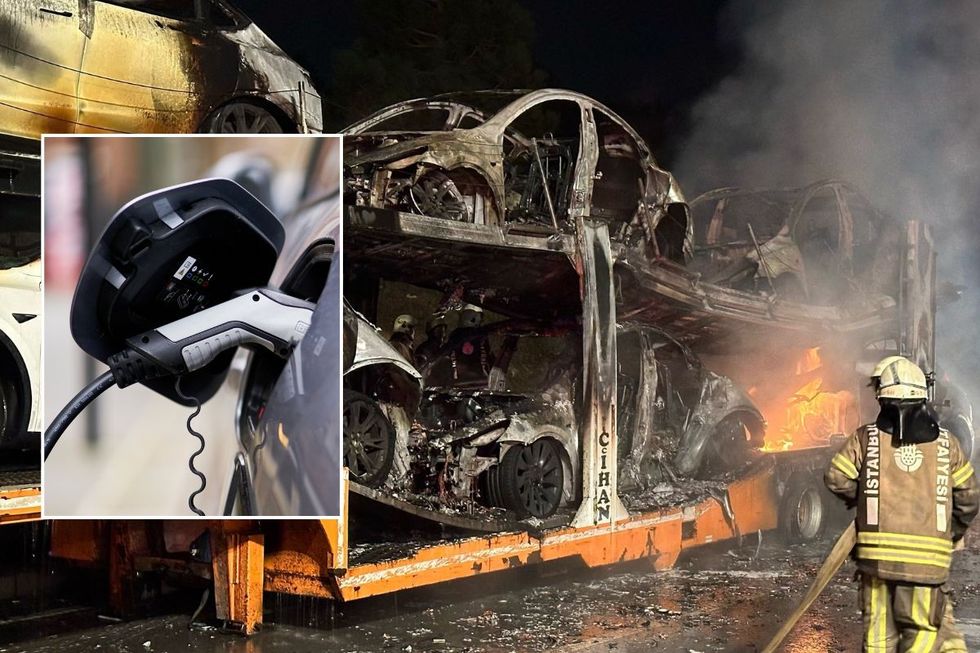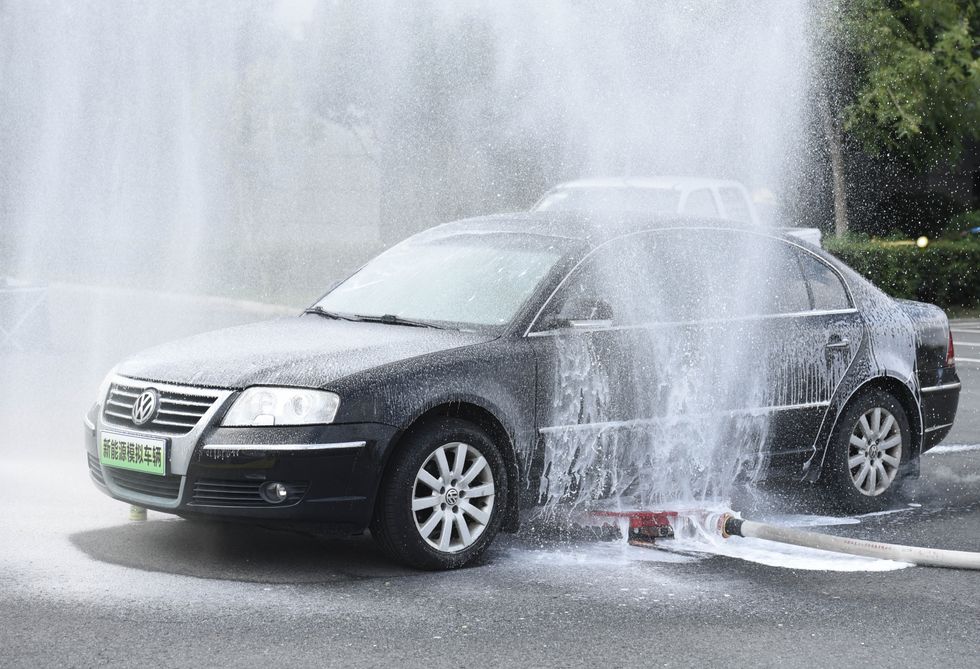Electric car fire rates could soar amid fresh warning of 'explosions' and 'toxic chemicals'

Estimates suggest that there could be 200 million electric cars on the road by the end of the decade
Don't Miss
Most Read
A new report has warned about the risks involved with electric vehicle ownership as more drivers decide to ditch their petrol and diesel cars.
A new research paper from Allianz Commercial has collated some of the largest risks associated with EV ownership and the threats that could arise in the coming years as adoption grows.
It states that the world could see over 200 million electric vehicles on roads by the end of the decade, which will require a suitable charging network to support motorists making the switch.
**ARE YOU READING THIS ON OUR APP? DOWNLOAD NOW FOR THE BEST GB NEWS EXPERIENCE**
The "Global Risk Dialogue" report identified that while electric vehicles are not more likely to catch fire compared to an internal combustion engine vehicle, other concerns are present.

The new report warned of the dangers of electric vehicle fires and how they could become more common in the coming years
|PA/GETTY
It warns that "thermal runaway, explosions, and the release of heavy metals and toxic chemicals" could result in heavy losses.
Thermal runaway is more common among electric vehicles given the large lithium-ion batteries. It appears when there is a significant and sustained rise in temperature of the cells inside the battery, potentially leading to a fire or explosion.
Rafael Rioboo, Regional Head of Risk Consulting for Allianz Commercial's Iberia region, said: "The riskiest moment in an EV's life concerning battery risk isn't driving - it's charging."
He warned that electric vehicle chargers can overheat or short-circuit, which can cause damage to the vehicle's battery system.
READ MORE: Cargo ship carrying 3,000 cars catches fire with 'smoke seen rising from deck loaded with EVs'

Fire brigades around the world are using new techniques to crack down on EV fires
|GETTY
Fire brigades around the world have adopted new measures to protect against the dangers of EV fires, including thermal cameras, fire blankets, and submerged containment tanks.
The report noted that police forces were also taking action to mitigate risks by isolating vehicles and managing "post-crash battery hazards".
Mr Rioboo claimed that strained electric vehicle chargers can potentially cause damage to the vehicle's battery system.
He said: "Thermal runaway doesn't wait for you to act - it ignites, escalates and overwhelms.
LATEST DEVELOPMENTS:
"It can lead to fires, explosions and the release of heavy metals and toxic chemicals like carbon monoxide and hydrogen cyanide, posing serious risks to people, property and emergency responders."
Data from the United States National Transportation Safety Board (NTSB) shows that electric cars experience around 25 fires per 100,000 vehicles sold.
Meanwhile, petrol and diesel vehicles average around 1,530 fires per 100,000, meaning internal combustion engine vehicles are around 61 times more likely to catch fire.
Other research from the Swedish Civil Contingencies Agency shows there have been just 23 fire incidents involving electric cars out of its total fleet of 611,000 EVs. This represents just 0.004 per cent.

The Morning Midas sank off the coast of Alaska at the end of June
| REUTERSIn comparison, of the nation's 4.4 million petrol and diesel vehicles, there have been 34,000 fires, or 0.08 per cent.
In June, a cargo ship carrying 3,048 vehicles, including 70 electric and 681 hybrid cars, sank off the coast of Alaska after a major fire onboard.
Zodiac Maritime, the manager of the Morning Midas vessel, reported that the smoke was "seen rising from a deck loaded with electric vehicles".
However, it has still not been established whether an electric car fire or thermal runaway was the cause of the blaze.











